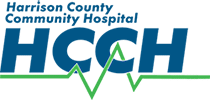Cardiac Rehabilitation
Through both exercise and education, cardiac rehabilitation helps you make lifestyle changes to better cope with heart disease. Our trained staff members aim to help you reduce cardiac risk factors associated with physical inactivity, diet, stress, weight, smoking, and high cholesterol. If you have experienced any of the conditions or procedures below, your physician or cardiologist may prescribe cardiac rehabilitation.
- Bypass surgery
- Congestive heart failure
- Heart/lung transplant
- Heart attack within the previous 12 months
- Recent coronary angioplasty with stenting
- Heart valve replacement
- Stable chronic chest pain (angina)
- Stable chronic heart failure
Cardiac Rehabilitation Department
2600 Miller Street
Bethany, MO 64424
Hours: Participants have three one-hour sessions each week on Mondays, Wednesdays, and Fridays.
Phone: (660) 425-0257
Cardiac Rehabilitation Details
Cardiac rehabilitation exercise sessions involve walking on a treadmill, riding a stationary bike, or using other exercise machines that provide a cardiovascular workout. While exercising you will be attached to a monitor so that a nurse can assess your heart rate and watch for cardiac rhythm changes.
Learning to make lifestyle changes to achieve better heart health is another important part of the cardiac rehab program. You will learn about preparing heart-healthy meals, smoking cessation, responding to stress, and other topics. Additionally, the program provides an opportunity for you to interact with others who have had a cardiovascular event.
Most patients beginning outpatient cardiac rehabilitation complete 18–36 monitored exercise and education sessions which occur three times per week. After completing that portion of the program, some patients choose to continue a supervised health and exercise maintenance program.
Medicare, Medicaid, and most insurance companies cover physician-prescribed cardiac rehabilitation. Harrison County Community Hospital also offers a self-pay option for those without coverage. Our staff members can help you determine whether your health plan covers cardiac rehabilitation.
Benefits of Cardiac Rehabilitation
- It reduces the overall risk of dying, the risk of future heart problems, and the risk of dying from a heart attack.
- It decreases pain and the need for medicines to treat heart or chest pain.
- It lessens the chance that you will have to go back to the hospital or emergency room for a heart problem.
- It improves overall health by reducing your risk factors for heart problems.
- It improves your quality of life and makes it easier for you to work, take part in social activities, and exercise.
Source: National Heart, Lung, and Blood Institute
